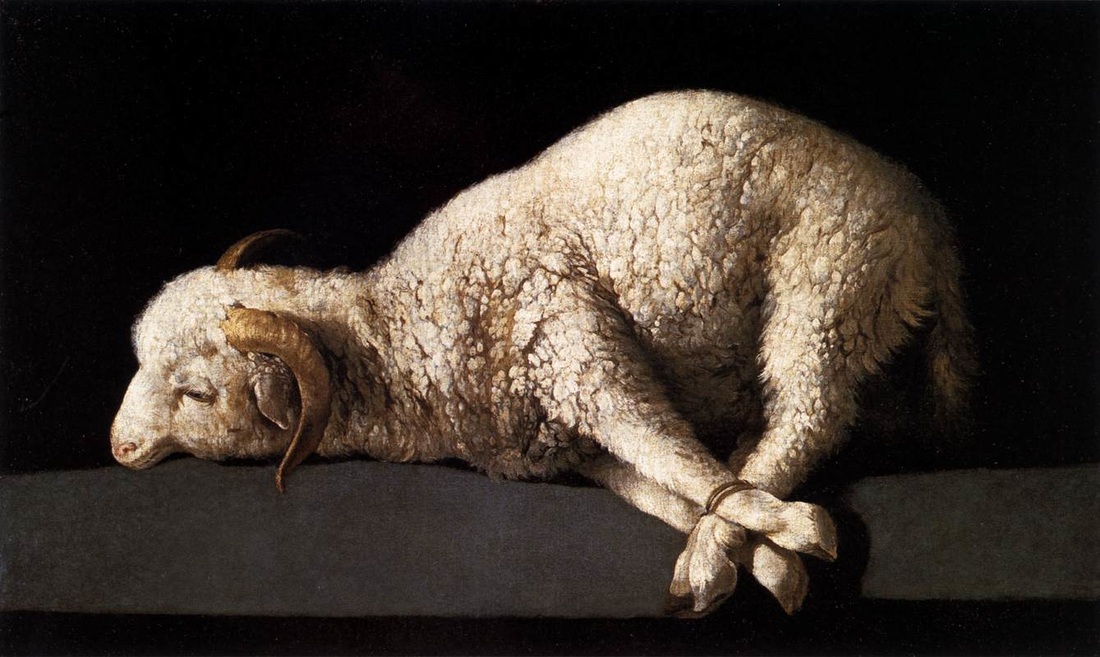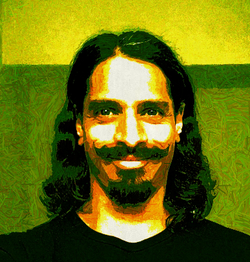The church used to be a source of education for its followers before there were institutions of higher learning. Rabbis, Priests, and holy men were educators in both faith and practical knowledge. The early church discussed methods of survival before technology had enlightened man to modern day hygiene, sanitation practices, and refrigeration. This meant that people would become sick if they ate food that wasn't stored or prepared with hygiene or safety. Many religions and cultures still avoid beef, pork, or meat all together for one reason or another. These habits were taught in the Temple, Church, Mosque, or home before being spread by its observers.
I used to take offense when a holy person would say that we [humans] are born into sin. I would observe my nieces and nephews come into this world innocent and pure and thought, "how could they have any sin?". I think as I matured I began to understand that the statement was referring to the nature of man and sure enough as these "innocent" children grew up, they would fight, tell lies, and generally be tiny humans. This made me realize that eventually all humans will resort to our natural flawed ways and this is what the priest was talking about.
I wanted to see if there was a way to actively combat the 'flaws' in our natural character. I began to identify opportunities where I myself failed to measure up to what my "ideal" self would have done. I was able to make a small list of the most important character defects that I would actively work on until it had become my new nature to react differently as my "ideal" self would do. I was learning to reprogram bad habits into productive good ones. This would take time as well as the occasional slip before the framework for a strong foundation of good habits was established. When mishaps would occur, as they inevitably do, it was important to forgive myself and continue moving forward by being more careful in the future.
Studies have shown that after three weeks of practicing a new habit, that it tends to stick to a person's nature as it has become routine in their daily vigil. I would liken this to a person going on a diet to lose weight. Once their ideal weight has been reached, the person must maintain their new healthy diet in order to prevent themselves from relapsing back into their old dietary habits which can result in their return to their unhealthy weight. This is probably one of the most difficult accomplishments for anyone seeking to change themselves, but certainly not impossible. It requires the will to seek change, the discipline to follow through on behaviors that diverge from the comfortable old path, and lastly the vigilance to know when one is slipping backward into old habits.
Once, while training for a boxing match, I decided to diet and exercise in order to make my desired weight for the bout. I changed my diet choices to include healthy alternatives to the quick and easy path I had been living off of prior to the fight. I maintained my exercise routine, but noticed a physical manifestation of my desire to change almost immediately. Soon excess weight began to disappear, energy levels increased, and confidence took a foothold. Within six weeks my body had lost almost 40lbs of what I can only call useless baggage that I was carting around where ever I went. It was liberating to be freed of the burden. Six weeks (about 40days) of practicing healthy diet and exercise choices has yielded returns many times over the initial investment. It took more time to convince myself to follow through on my action plan, but when I finally went through with it the results were priceless. I bought myself a new suit, which cost enough to make me want to maintain my new physique.
Six years later, I decided to compete in another boxing tournament to remind myself of the discipline necessary to make meaningful changes in my life. For six weeks I sacrificed indulgences in diet, drink, and women. While my body maintained nearly the same shape as I was six years previously, I discovered a maturity had been gifted to me in this second boxing "fast". For many years I had been struggling with a ferocious temper that I knew would eventually cause me great suffering and pain. I prayed for the maturity to encounter this demon and ultimately emerge victorious against my foe. I practiced moderation. I learned to breath and remain calm. I learned to laugh.
During the actual bout, I recall being punched in my face only to respond with a smile or laughter. I maintained my calm, despite enormous pressure, and did what felt natural. When the bout was over, and the doctor had checked my head, I felt happy that I had passed the test. I did not succumb to my temper, but rather remained faithful to what I had prayed to receive, "grace under fire".
Just recently, I had the opportunity to travel to several countries for nearly six weeks. These were older countries with different modes of living. Having been born and raised in one of the most recently developed and affluent countries in the world, it becomes easy to take basic comforts for granted such as simple hot water for baths, or the ability to drink tap water without fear of sickness. One of the gifts that I have been given is the ability to appreciate culture. To fit in and enjoy the food, drink, and music our brothers and sisters enjoy all around the world. For nearly 40 days I left the comfort of my life in Austin,TX which included my bed, my clothes, my vehicles, and my friends. I changed the scenery by flying to another country. New people, new customs, and a new schedule. Priorities change according to the day. Some days began very early, others a little more relaxed than before. Water conservation is practiced without a second thought. Waste is not common. People get along without worrying who's disrespecting who. Patience is a necessity, equally as important as being assertive. Privacy is an indulgence, where most of the time sharing is the policy.
A few observations that I noted of the culture were the daily rituals of the people, many who get up very early and visit the temple or church for blessings, meditation, or to orient themselves towards God before beginning their day. Next, they would walk however long back from their morning prayer to the markets to purchase food for breakfast and head home for a bath to begin their day. The bathrooms in this part of the world are quite different from what we have become used to here in the USA. The water used for baths is often boiled on a propane stove before being poured into a large bucket and mixed with tap water to cool to a comfortable warmth. Then the bather must pour this water over themselves with a small handled jug (called a 'lota') before being sufficiently wet enough to create suds with the soap. Then using the remaining hot water, wash off all the soap. As it was winter there, I enjoyed just pouring the remaining hot water over myself until the bucket was empty. Such a simple method for bathing and yet it wastes very little water. In fact, if one is efficient with their time, they can use only half a bucket and still keep hot enough water for another person to use right after.
I guess my point in discussing Lent is the opportunity it provides a person to make meaningful changes through sacrifice in their lives (like an excuse to break a bad habit). To challenge oneself to change some aspect of their character. To see the world with spiritual eyes and see the things one doesn't normally see in their daily routine. To endure the struggle from vice and emerge victorious. To practice our ability to change our paths and become who we are capable of being.




 RSS Feed
RSS Feed
